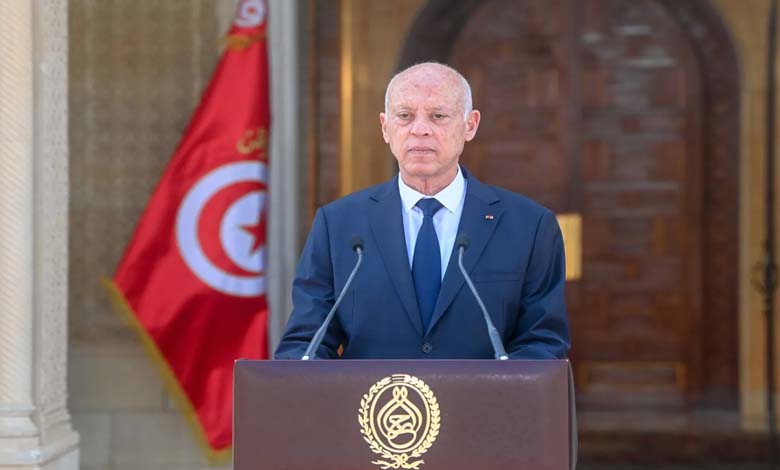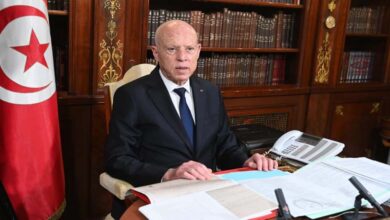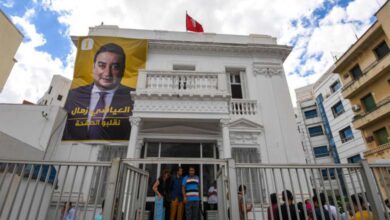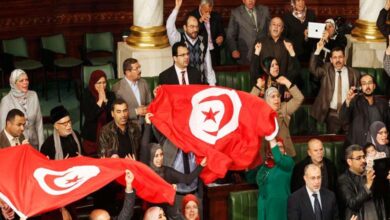Kais Saied escalates against the Muslim Brotherhood: Accountability is coming, and no one is above the law

Tunisian President Kais Saied has entered a new stage of political escalation against the Muslim Brotherhood in Tunisia, most notably the Ennahdha Movement. He made it clear that the era of immunity is over and that accountability will extend to all those who have broken the law. This message was delivered during a meeting with Prime Minister Sara Zafrani Zenzeri, where Saïed stressed that the Tunisian people are no longer deceived by “old tricks” and that those who consider themselves above the law will soon face justice.
-
Tunisia’s Muslim Brotherhood: Are the Recent Judicial Rulings Paving the Way for the Dissolution of Ennahdha and Its Classification as a Terrorist Organization?
-
Descendants of the Muslim Brotherhood and Ennahdha Movement: Tunisian Calls to Ban the Radical Hizb ut-Tahrir Party
Saied’s statements come in a tense political context and reflect a determined approach to dismantling the networks of influence that Ennahdha has entrenched within state institutions since 2011. The president emphasized that “those who tried to set traps have fallen into them themselves,” a clear reference to the Brotherhood’s attempts to destabilize state institutions through partisan loyalties and questionable appointments.
Political analyst Abdelmajid Al-Adwani noted that Saied’s remarks mark the beginning of a comprehensive review of the Brotherhood’s legacy within the state’s structures. He added that Brotherhood leaders living abroad, such as Rafik Abdel Salam and Radwan Al-Masmoudi, continue their attempts to exert influence through media and political campaigns aimed at tarnishing Tunisia’s international image. However, these efforts face increasing failure as the organization loses internal influence and its popular base erodes.
-
Tunisian Brotherhood: Arrest of 80 Leaders from the Ennahdha Movement. What Are the Charges?
-
Referral of Several Ennahdha Leaders to the Anti-Terrorism Pole
In parallel, since September 2023, the Tunisian government has been conducting extensive audits of appointments made during the decade following the revolution, particularly those suspected of being irregular or based on falsified documents. This process is expected to serve as a central tool for restructuring the administrative apparatus and exposing the deep reach of the Brotherhood’s networks within the state, potentially leading to a wave of dismissals and even legal prosecutions.
Observers believe the coming days may reveal practical steps translating Saied’s rhetoric into tangible decisions, particularly regarding the opening of legal cases or holding certain leaders accountable for exploiting state institutions. In response, Ennahdha and its allies may intensify their media discourse or attempt to mobilize the street. Yet, current indicators suggest that the political and popular landscape is no longer in their favor.
Through this escalation, Kais Saied has outlined the contours of a new phase centered on reclaiming the state from partisan clientelism and launching a cycle of accountability that could shape Tunisia’s political future: between a presidential project driven by the motto of “justice” and an Islamist organization struggling to cling to what remains of its influence.
-
Analysts Reveal Ennahdha Movement’s Plans to Ignite Tensions in Tunisia
-
Tunisian Analyst: Ennahdha uses false propaganda and pressures to undermine elections
-
In Tunisia, Ennahdha and the postponement of the “terrorism trial”: harsher penalty
-
Strategic Analyst: Tunisians Fear the Return of Ennahdha Movement to Power












